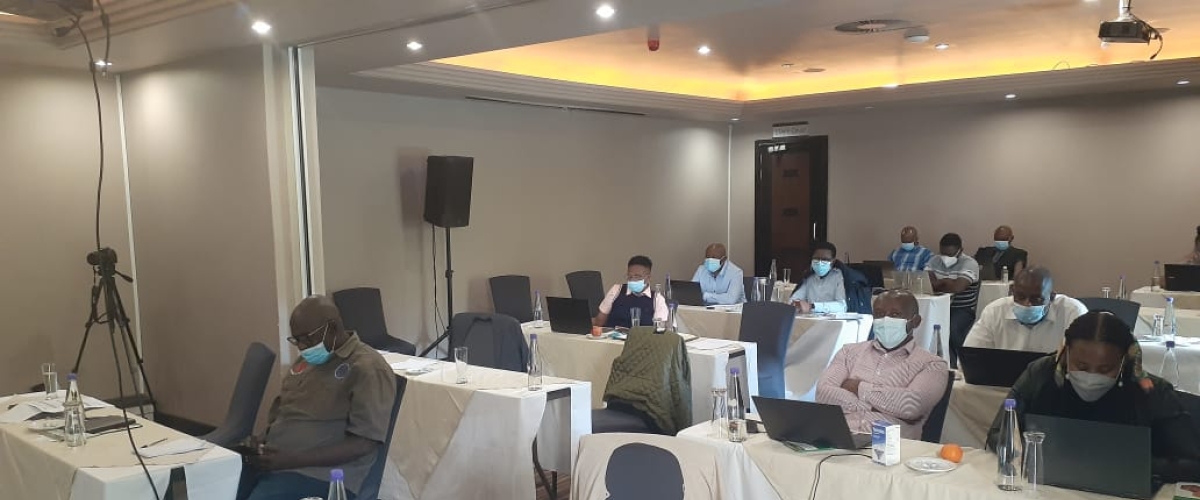
The Centre for Coordination of Agricultural Research and Development for Southern Africa (CCARDESA) capacitated about 20 agricultural scientists and M&E experts on Result-based Management (RBM) approach, from 13th to 15th September, 2021 in Maseru, Kingdom of Lesotho. The training was held as part of CCARDESA’s backstopping mission under the Agricultural Productivity Program for Southern Africa (APPSA) in Lesotho.
APPSA is a 6-year World Bank funded regional initiative currently implemented both in Angola and Lesotho with regional coordination by CCARDESA. Angola is establishing the Regional Centre of Leadership (RCoL) on cassava and cassava-based farming systems whereas Lesotho is focusing on horticulture and horticulture-based farming systems.
As a regional coordinating body, CCARDESA has a critical role to play in supporting the capacity building of APPSA Project Implementation Units (PIUs) as well as key stakeholders on different topics of interest. The RBM is one of such topics. For 3 days, participants were exposed to advanced methods and procedures to effectively track results and impact at country and regional levels. Facilitated by Mr Dagmore Tawonezvi, who is the APPSA Regional M&E Officer, the training was attended by among others, Dr Lefulesele Lebesa, the Director of Research under the Ministry of Agriculture and Food Security in the Kingdom of Lesotho.
RBM or results-based approach is a life-cycle approach to management that integrates strategy, people, resources, processes, and measurements to improve decision-making, transparency, and accountability. The approach focuses on achieving outcomes, implementing performance measurement, learning, and adapting, as well as reporting performance.
For Mr Tawonezvi, during project implementation, Managers are often tempted to only focus their attention on inputs (what we spend), activities (what we do), and outputs (what we produce). This may significantly blind the entire process affecting their capacity to see the destination and, when implementation has gone off course. “We can only take corrective action or MANAGE effectively, when we know where we are going and this requires looking beyond activities and outputs and focusing on actual results”, added Mr Tawonezvi.
The training concluded with a session where participants were introduced to the CCARDESA D-Group. This is an on-line facility that hosts discussion groups for Scientists, M&E experts and other stakeholders, allowing them to share agricultural information with their peers from across the region.






